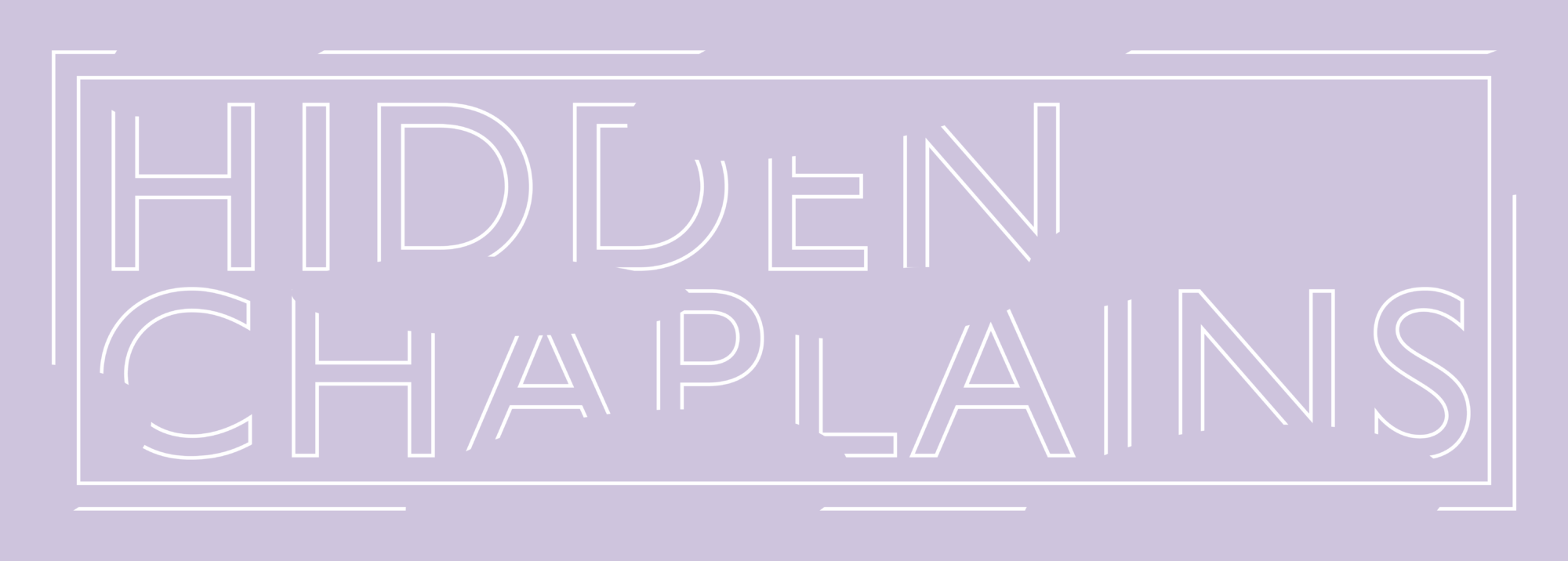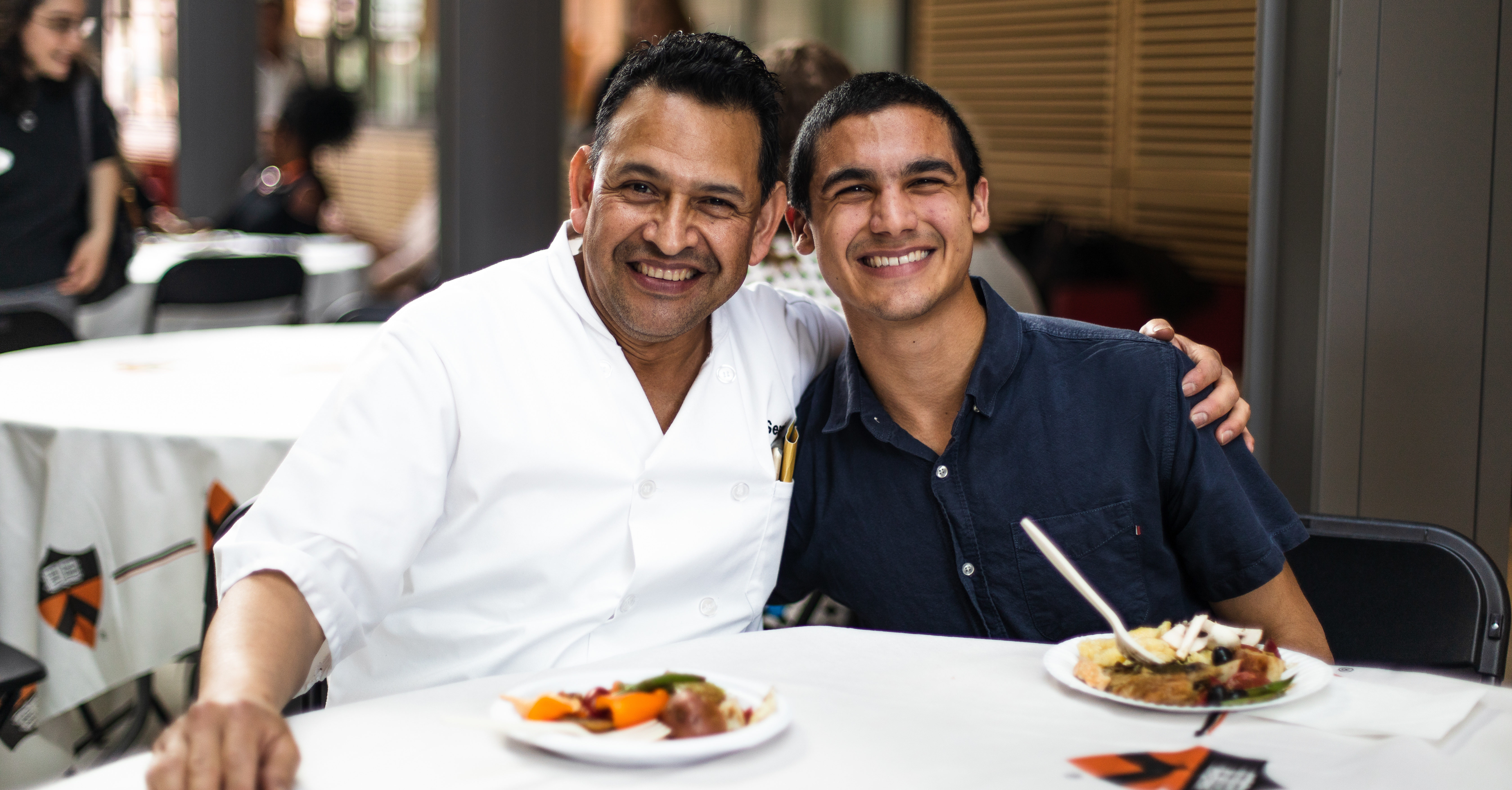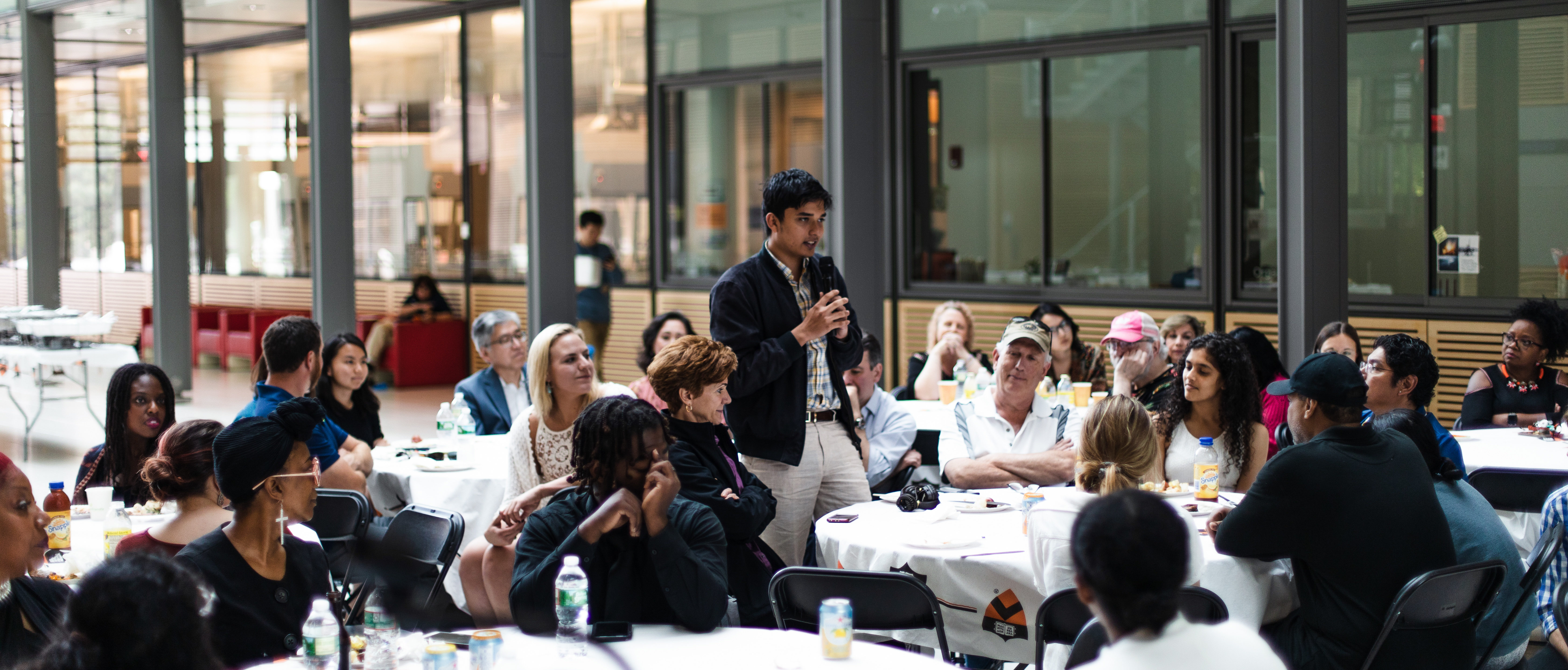“You don’t know what their day’s been, you don’t know how they’re feeling, but when I see a little smile, that’s when I know that I got in. That’s what I like to do, I like to get in…Looking at people in the eyes, talking to them, that’s a way of honoring them. It’s what I do every day, I honor people!”
— words of a nominated “Hidden Chaplain”
FREQUENTLY ASKED QUESTIONS:
What is Hidden Chaplains?
Hidden Chaplains is an exercise developed by the Office of Religious Life that aims to help students notice and appreciate the compassion around them, to create an opportunity for both private and public gratitude, to notice and deepen informal friendships. Our hope is that the nomination process itself will encourage students to reflect on their interactions with strangers and its meaning. In a typical year, everyone nominated is invited to a dinner with the student nominators, and is asked to bring their own hidden chaplain, with the notion that they too have people who change their day in similar ways.
This begins to sketch the informal networks of care that sustain and enrich each of our lives inside and outside of institutions. Hidden Chaplains is a project in re-orienting attention towards those who do the unglamorous everyday work of caring for and about others
Who is a Hidden Chaplain?
Hidden Chaplains are those people on campus who change your day with a smile, a question, a hello. They swipe you in at the dining hall, work as an office manager in your department, take care of your building.
They are not your fellow students, they are not your professors. They are not paid to help you or be nice to you, but they change your days here. With their quiet generosity and work, Hidden Chaplains are the backbone of how we make this university compassionate.
What happens after I nominate a Hidden Chaplain?
We will be initiating student nominators and Hidden Chaplains to take part in a dinner celebration. Due to Covid-19 restrictions, we are unable to do that this year. However, we will still be supporting students in finding creative ways to recognize their Hidden Chaplain.
Examples of Hidden Chaplains:
Coffee Barista | “I began to recognize their voice by going through the drive through so many times. A couple weeks ago, a friend from Princeton and I went into the store to work on a group assignment together, and it was then that I could finally put a face to the voice. They are always extremely patient, and engaging with us. No matter how busy the store is, they always ask how we are (and actually listen). Right now, any form of social interaction outside my small circle of family and friends is highly appreciated, and I always value our small conversations.” – Esha Jain ’23
My Neighbor | “I’m nominating my neighbor, whose house I always pass during my afternoon runs. He either smiles, claps, or offers a thumbs-up to keep me motivated, even on days when I feel a bit sluggish. On a few occasions, we’ve had conversations about how I started running and why I keep going despite not being on a competitive team. He’s even introduced me to a few of his friends and offered me water — which was especially helpful this past summer! In the end, I genuinely appreciate him cheering me on, especially when it’s been personally difficult to find energy during the pandemic.” – Shanaz Deen ’21
HOW WE STARTED
Can we make a university compassionate? This question, a chance interaction, and a conversation between a student and chaplain led to the Hidden Chaplains project. It happened during a regular morning meeting between Matt Weiner, a Dean in the Office of Religious Life, and Kyle Berlin ’18. Matt shared a story about a woman named Catalina, a clerk at Whitman College. Although her primary work was to oversee entrance into the dining hall, Catalina knew many students names and interacted with them in a small, yet meaningful way. Kyle smiled, as he knew the clerk that Matt was referring to. As they thought about this incident further they realized that most every student at Princeton had a person or two who served this informal, almost hidden, and yet very important role in their lives.
As a result of these conversations, they gathered a group of students who could help investigate the idea further, and decided upon the above format, to include both a venue for public acknowledgement and celebration, and the opportunity for serious reflection. Why were such relationships, though particular in example, nearly a universal part of a student’s experience? Why did students smile and say the name of their ‘hidden chaplain’ upon being asked if they had one? Why was something so small and informal so very meaningful? Why was it something never talked about? Why did staff commit regularly and throughout their days to a practice that was not part of their job description? What does it say about the nature of informal interactions, the nature of kindness, and the experience of students and workers on campus?
In summary, Hidden Chaplains is an exercise that hopes to help students notice and appreciate the compassion around them, to create an opportunity for both private and public gratitude, to notice and deepen informal friendships. It hopes to investigate further questions about how compassion manifests within institutions in ways that complement questions about efficiency and justice. Finally, it draws attention to ideas of chaplaincy being considered within secular institutions.


